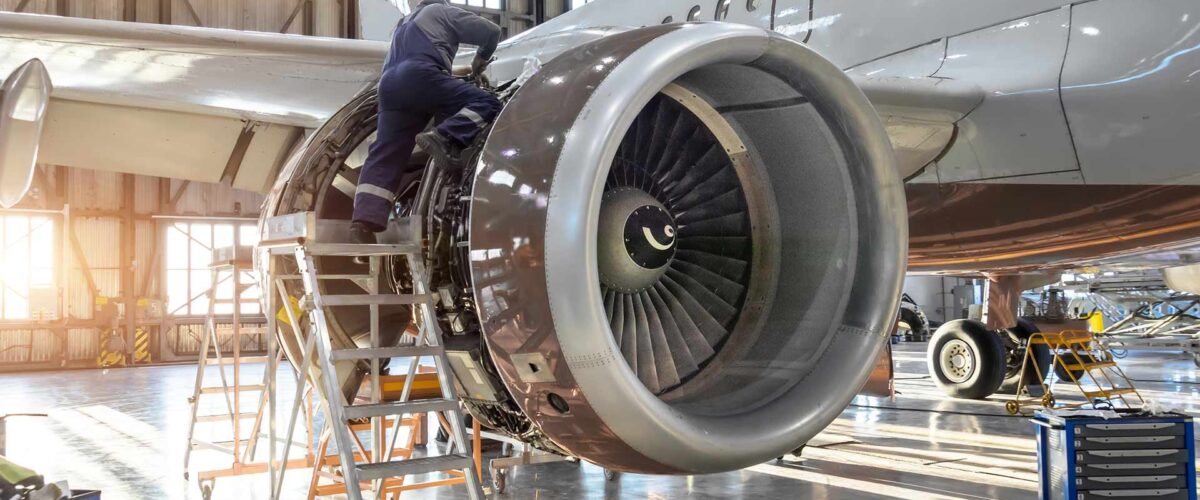The aviation industry is seeing a resurgence after the pandemic. Air travel is picking up again, and the rate of new aircraft being produced is rising – both creating more work for MROs. As aircraft are brought out of storage and back into service to meet fleet demand, there is also a surge in return to service maintenance, and a catch-up needed on previously deferred maintenance. At the same time, MROs are facing a shortage of technical-skilled workers and key front-line employees. This could have a significant impact on aviation as a whole if a lack of workers disrupts the industry’s ability to meet the demand for services.
Two Key Reasons the MRO Labour Workforce has Dropped
1. Effect of Covid-19 on the MRO Labour Market
MRO saw a wave of retirement during Covid-19. With the downturn in available work, many chose to retire early. Other employees lost their jobs when MROs had to make cost savings to survive. Now the facilities need to rehire, and many MROs are having to raise wages to attract and keep technical staff.
The pandemic has also caused many people to rethink their job expectations and consider where they work. Employees are looking for jobs that offer better work-life balance and industry stability. To work in MRO however, employees often need to be willing and able to move nearer to MRO facilities. The aviation industry is also renowned for its fluctuating demand and instability. This means that potential MRO staff may be looking to other industries for work.
In addition to the loss of labour, MROs have lost cultural knowledge and expertise industry wide. This includes a loss of industry relationships which in turn has had an impact on the smooth running of services. Along with the current materials shortage, the loss of key people has added to lengthy repair times and bottlenecks.
2. Aviation Jobs are Losing their Appeal
The pandemic has not been the only driver of the reduction in MRO staff, the industry was already experiencing difficulties finding and retaining employees.
Even though the aviation industry is making strides to become more sustainable across a myriad of areas, concerns about the impact on climate change and sustainability were affecting recruitment even before Covid-19.
MROs have traditionally been at the forefront of technology, and this has driven a lot of interest in MRO jobs. However, this perception has changed, and MROs are losing the advantage of attracting new technical staff, despite technological developments in many aspects of the job. Newly qualified technicians are being enticed to other industries. Conversely, the uptake of technology in MROs has also led to attrition, as some traditional methods have become obsolete, and roles have changed.
Three Ways to Make MRO Jobs More Appealing
1. Increase MRO Educational Outreach
One solution to filling the labour needs of the MRO industry in the medium to long term may be partnering with nearby colleges and schools to create MRO pathway programs, training opportunities, internships, and facility work experience tours for local students. This would give young people a better understanding of the MRO industry, what kind of jobs are available within it, and perhaps quite importantly, demonstrate the exciting technological advances and opportunities within the industry.
Choose Aerospace is a partnership that brings together companies, associations, labour unions and educational institutions to increase interest in aviation careers and grow a diverse and qualified workforce. They aim to provide multiple industry career paths. Choose Aerospace works together to include aerospace career and technical training in secondary schools and have recently created a new aviation high school curriculum.
MRO training programs should use a mix of teaching and learning methods, including combined in-person, e-learning (video lectures, e-books), and augmented / virtual reality simulations, to help retain students and keep training relevant to the developing MRO environment.
2. Get the Word Out – MRO is a Great Career Path!
Many people don’t realise just how much is new and innovative in MRO, particularly in sustainability and digital technology. MRO is well-positioned to take advantage of these trends. MROs who adopt new technology early on can benefit from the job opportunities created for workers with the right skillset.
With work-life balance and cost of living becoming increasingly important factors, the location of the facility can have a significant impact on the ability to hire and retain workers. When planning new MRO facilities, it is important to consider the areas where labour might be drawn to. For existing facilities attracting local interest is key.
MRO offers many opportunities for growth and the potential to earn a good income. With more publicity, more people may see just how good jobs in MRO are.
3. Diversify the MRO Talent Pool
More work is needed to increase the representation of women, and other groups, who are underrepresented in the aviation industry. Diversifying the aviation labour force is important to ensure that the industry is representative of the population as a whole. Additionally, by diversifying the talent pool, we can increase the number of talented workers available.
The theme of how to attract a more diverse and inclusive workforce was strong at MRO Americas 2022. Many companies and organisations used the show as an opportunity to draw in more new talent, such as A-wing who focus on inspiring more women to take up careers in aviation. On the show floor, there was an aerospace maintenance competition where it was encouraging to see so many people trying out their skills and interests in this field. The MRO labour market is certainly showing promise for the future.
In Summary
The MRO labour market is facing a worrying shortage of workers. There are a number of challenges that need to be addressed in order to attract more technical-skilled and front-line employees. To make MRO jobs more appealing, educators and industry leaders need to increase outreach and get the word out about the great opportunities available in MRO. By understanding the needs and preferences of potential employees, MRO can create work environments that are both productive and desirable. The MRO labour market is seeing increased interest from a more diverse pool of talent, which is a beacon for growth for the industry.

